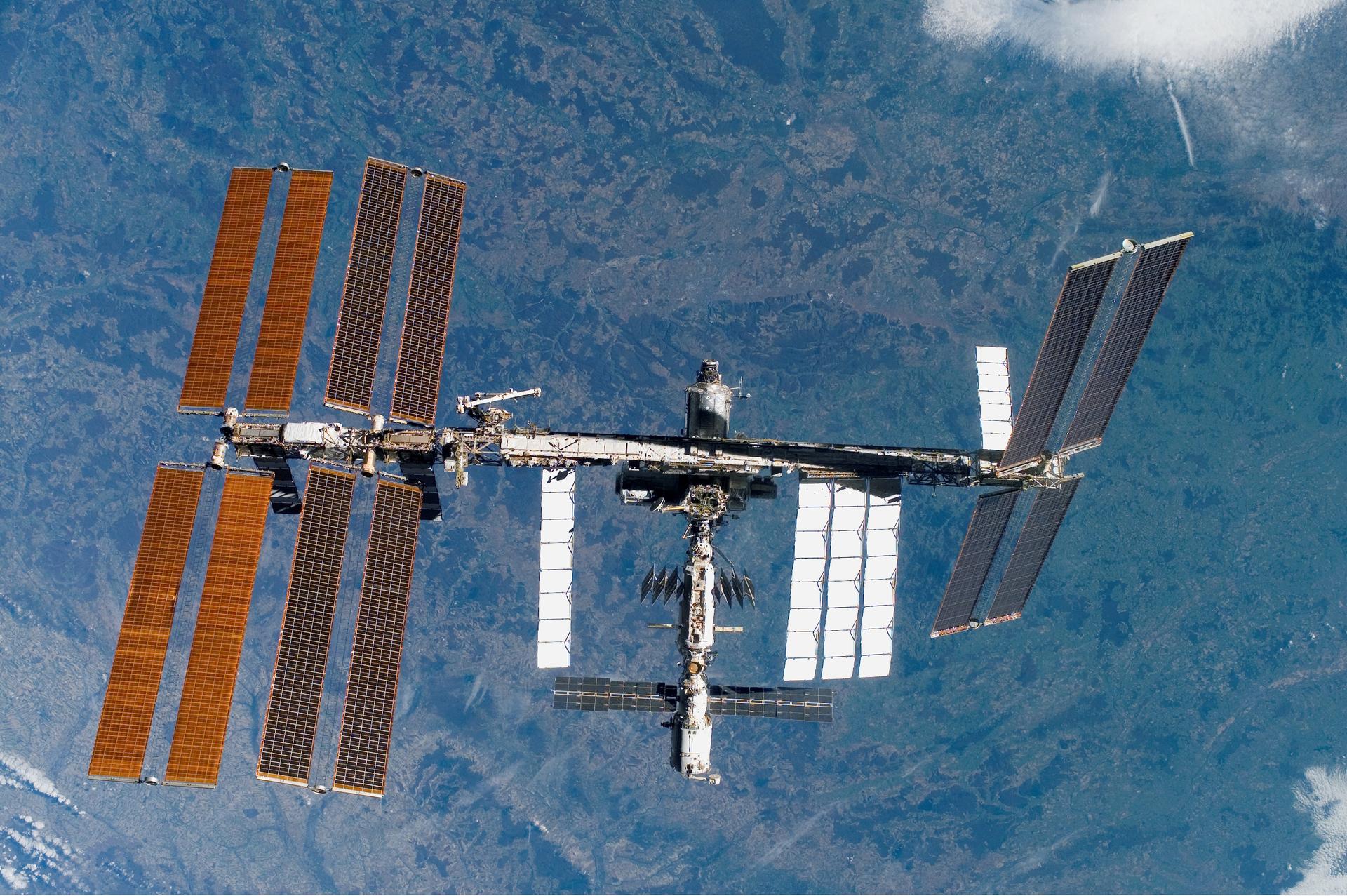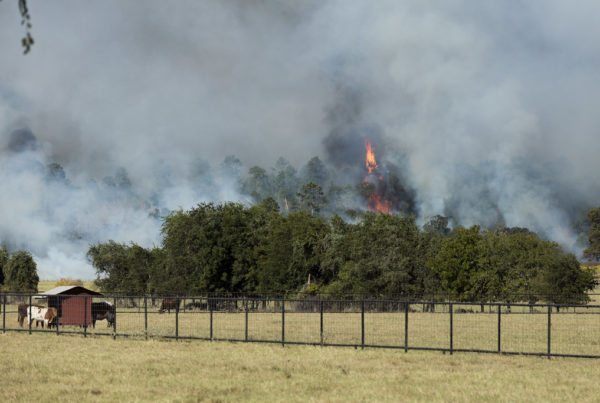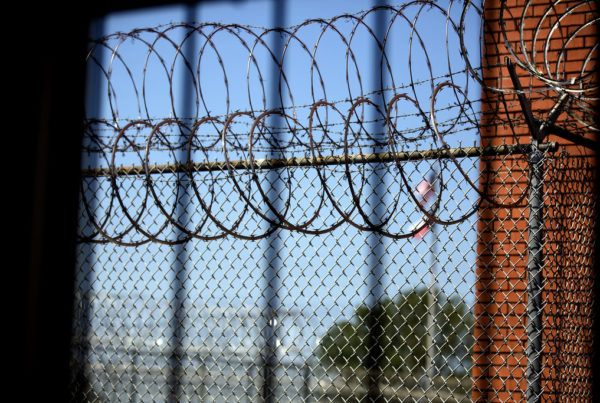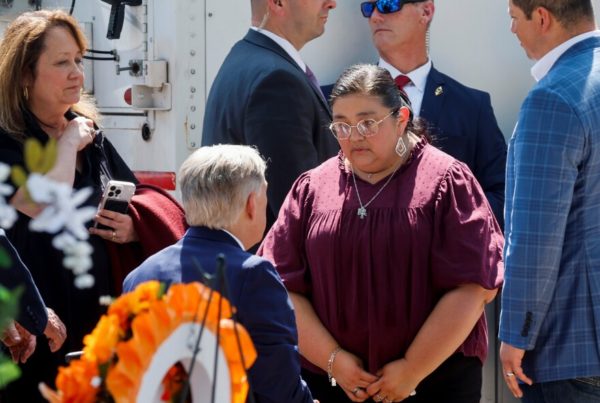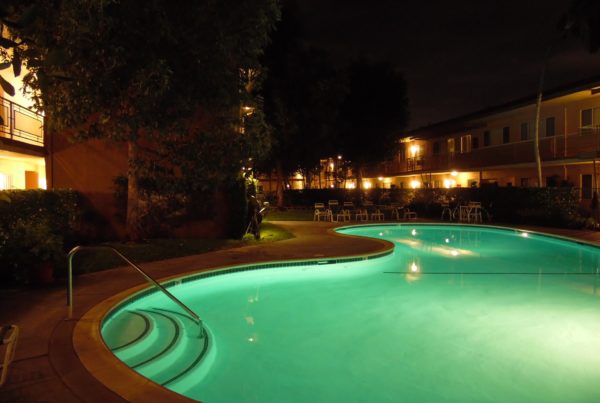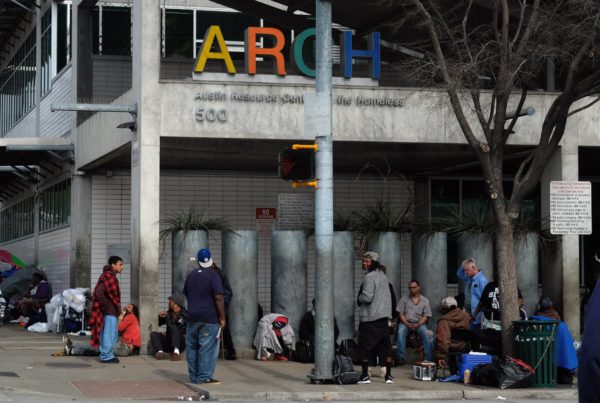Despite tensions on the ground, so far there’s been no interruption in cooperation between the United States and Russia when it comes to the International Space Station. It’s unclear how long that will remain the case, however.
Earlier this week, a Russian state news site reported that officials for the country’s space program planned to withdraw from the ISS after 2024. That came as a shock to many observers; as recently as March, the countries discussed working together at the space station through 2030. Just a few days later, though, Reuters reported that Russia planned to continue cooperating after all – at least until its own, stand-alone space station is up and running.
Loren Grush, a senior science reporter for The Verge, spoke to Texas Standard about the prospects for long-term cooperation in space between the U.S. and Russia.
This transcript has been edited lightly for clarity:
Texas Standard: So Russia said they want out, and now they’re saying maybe not. What exactly is going on here?
Loren Grush: When it comes to statements about the future of Russia’s participation in the International Space Station, you always have to kind of read between the lines and really take a very literal reading of what they say. So the new comment came from Yuri Borisov, who’s the new head of Russia’s State Space Corporation, Roscosmos. And you have to understand, he’s quite new. He just got this job about a week ago. Beforehand, his predecessor, Dmitry Rogozin, was in charge. So he’s a bit of a new player for Roscosmos, so we don’t really quite know how he acts yet.
But the statement came from him and what he said, at least according to the translation, was that the decision on leaving the station after 2024 has been made. So you have to read that very carefully, right? He said “after 2024” and the decision has been made. So “after 2024” could mean 2030, which is when NASA wants to continue operating the space station until. And he also made a point to say that they wanted to focus on their new space station, which is the ROSS, for Russian Orbital Service Station. That was kind of the main point.
Just to be clear, Roscosmos is basically Russia’s NASA. I’m a little unclear as to why Russia announced it would withdraw in the first place. Was that because of the discussions about what would happen come 2030, or why 2024? And obviously, a lot of people are thinking about the tensions here on Earth between Russia and the United States – in fact, most of the West. Is all of that tied up together?
Well, you have to understand, this is not new for space reporters like me. Prior to Yuri saying these things, Dmitry Rogozin used to constantly threaten to leave the International Space Station. You know, they were not very happy about the sanctions that were placed on Russia amid their invasion of Ukraine. So this is a kind of a fairly regular occurrence. They like to say that they’re going to do this. But what you really need to take note of is: Whenever they give an official notice to NASA, that’s when to start to take things seriously, because part of the agreement that the international partners have on the space station is that they have to give at least one year’s written notice about their intent to leave.
And I presume that that written notice has not come through, right?
No. And each time one of these statements is made, NASA comes out and says, “Okay, look, you know, we haven’t received official notice, so it’s still business as usual.”
So what is this space station that Russia’s developing on its own?
It’s the Russian Orbital Service Station, and it’s very preliminary. The goal right now is to get the first part of it up and running by 2028. And so when we heard that Roscosmos had informed NASA on the side that they wanted to remain with the International Space Station until their ROSS Space Station was up and running, the insinuation was that, okay, we’ll at least be with the ISS until 2028, which is when Russia expects their space station to be up and running. So that’s where those numbers come in.
Could the International Space Station function without Russia’s cooperation? Could NASA do this on its own?
That’s a great question that we’ve been asking quite a lot since the Ukraine invasion began. As of this moment, no, it’s a pretty symbiotic relationship between the two. NASA’s responsible for creating electricity on the space station and also for maintaining the space station’s position in orbit. And Russia is pretty fundamentally important for boosting the space station’s orbit with its progress capsules – so to make sure it doesn’t fall out of the sky, which Dmitry Rogozin liked to remind us back when he was in charge, that’s Roscosmos’ capability.
Now, I’m very certain NASA has thought of other ways to keep the space station afloat without Russia. But that’s something they really do not want to do. The space station program was designed for these two entities to work together. And the path that they very much want to take is to continue working together in a partnership and not upset the status quo.
Well, at least NASA, right. It’s a little less clear exactly what Russia’s endgame is here. But I’m curious what you make of the future of international cooperation in space. And I think a lot of us are sort of scratching our heads as to just how much what happens between the two countries here on Earth actually affects space cooperation?
Well, I think because of tensions between NASA and Russia, if you’ll notice, it’s really the International Space Station that keeps the two together. Moving forward, NASA’s working on its Artemis program, which will have international cooperation. But Russia has been very clear that they do not want any part of that and that they would prefer to partner with China on their deep space efforts.
So it’s really this unique partnership that tethers the two, and once that’s over, I’m not sure that NASA and Roscosmos will have as strong of a relationship as they once had. So, you know, it remains to be seen. Obviously, things can change, but for now, once the space station partnership ends eventually – perhaps in 2030 – I don’t know if we will have that strong of a bond anymore.


